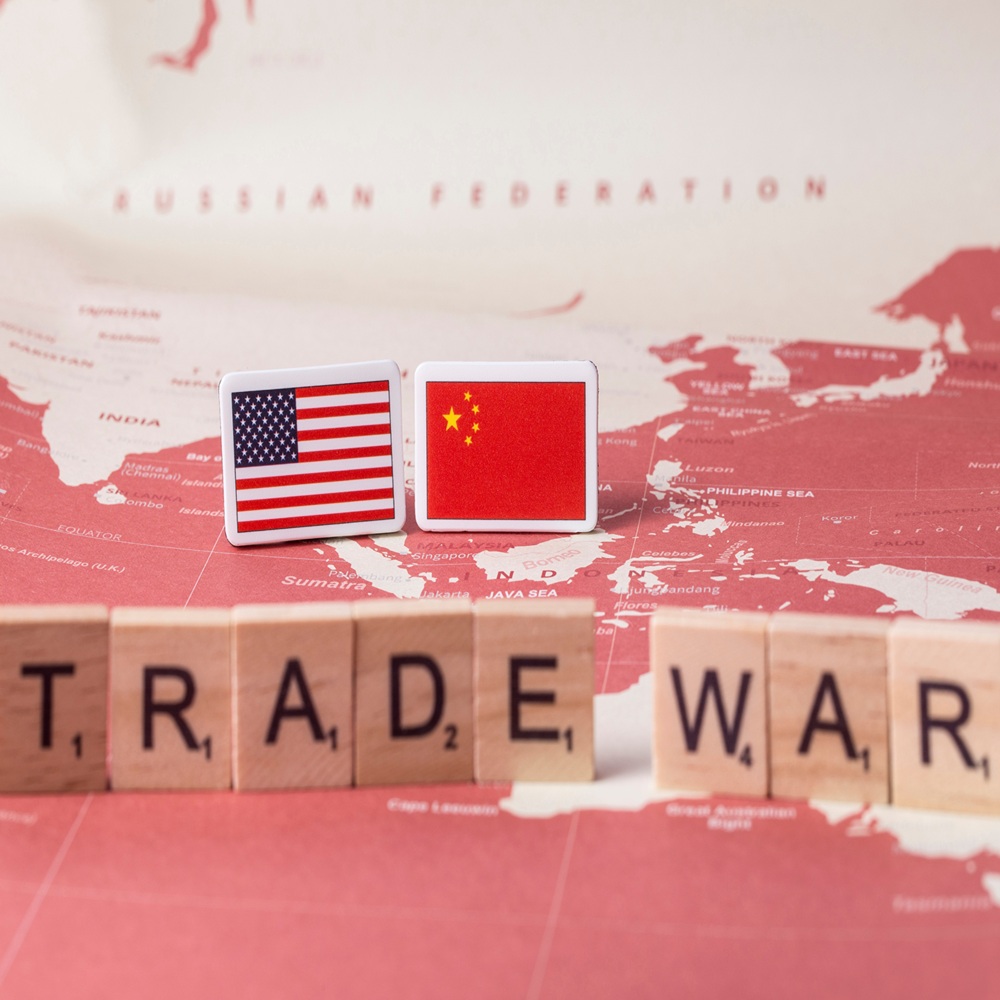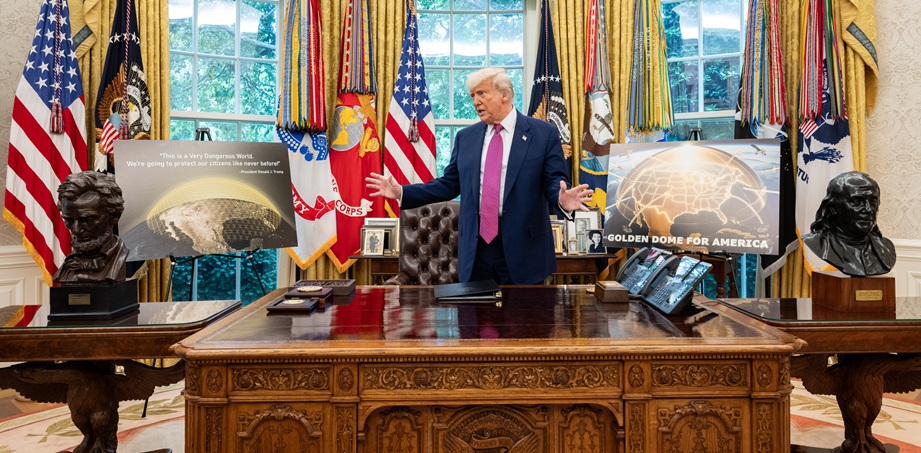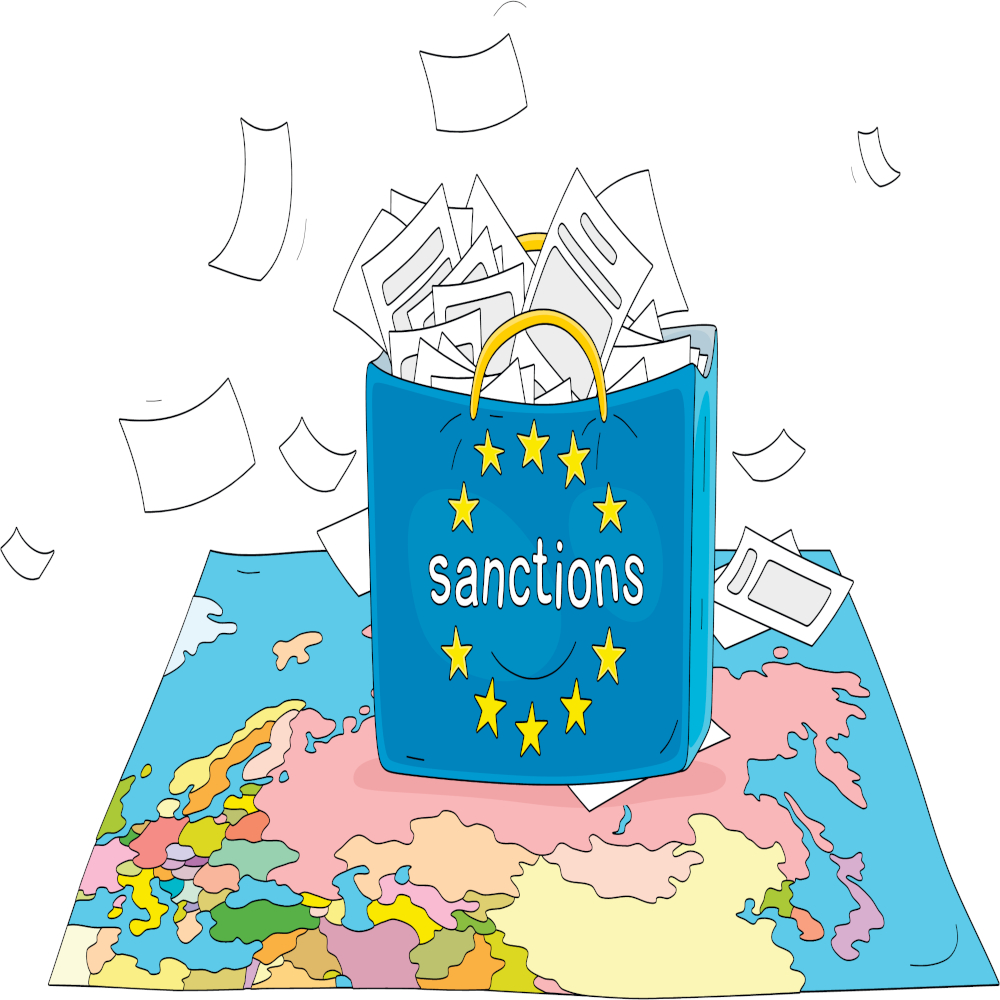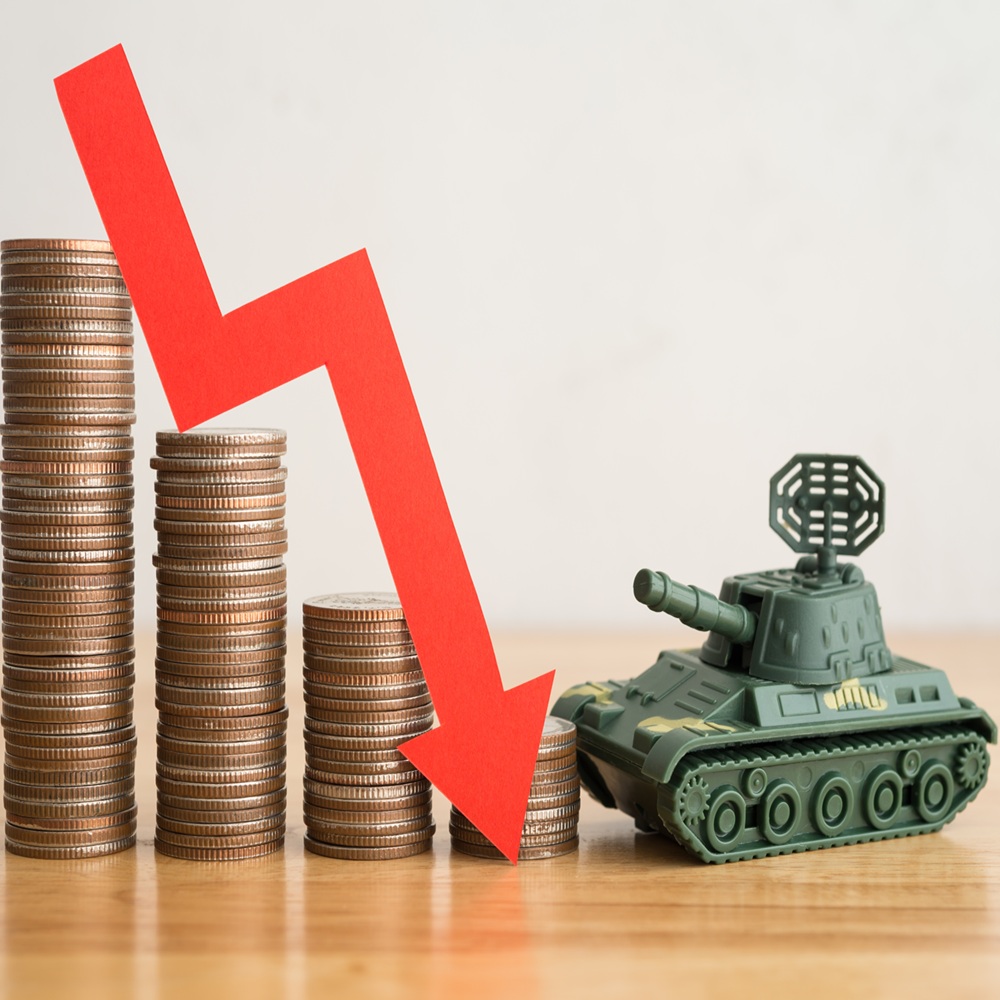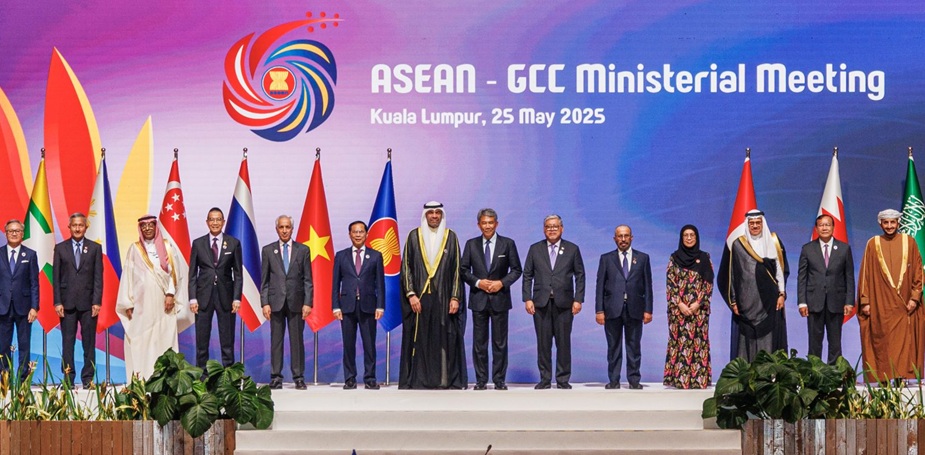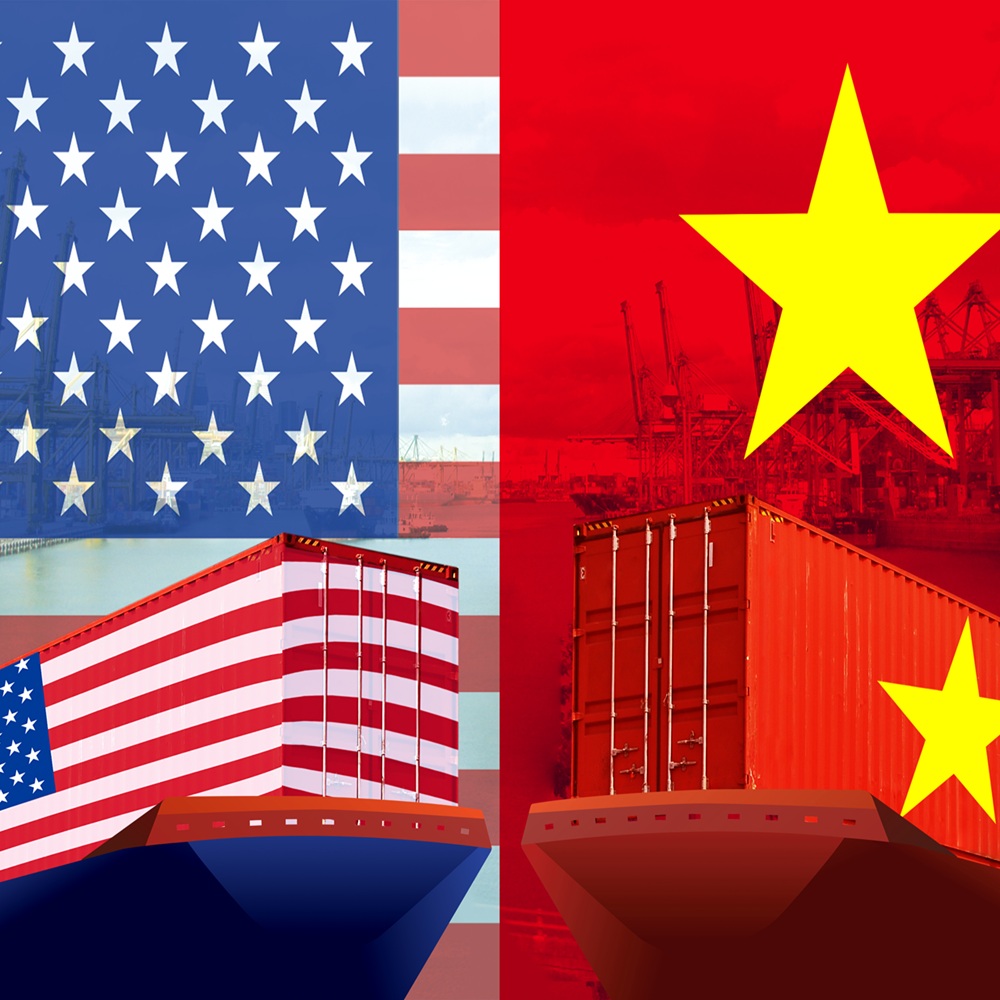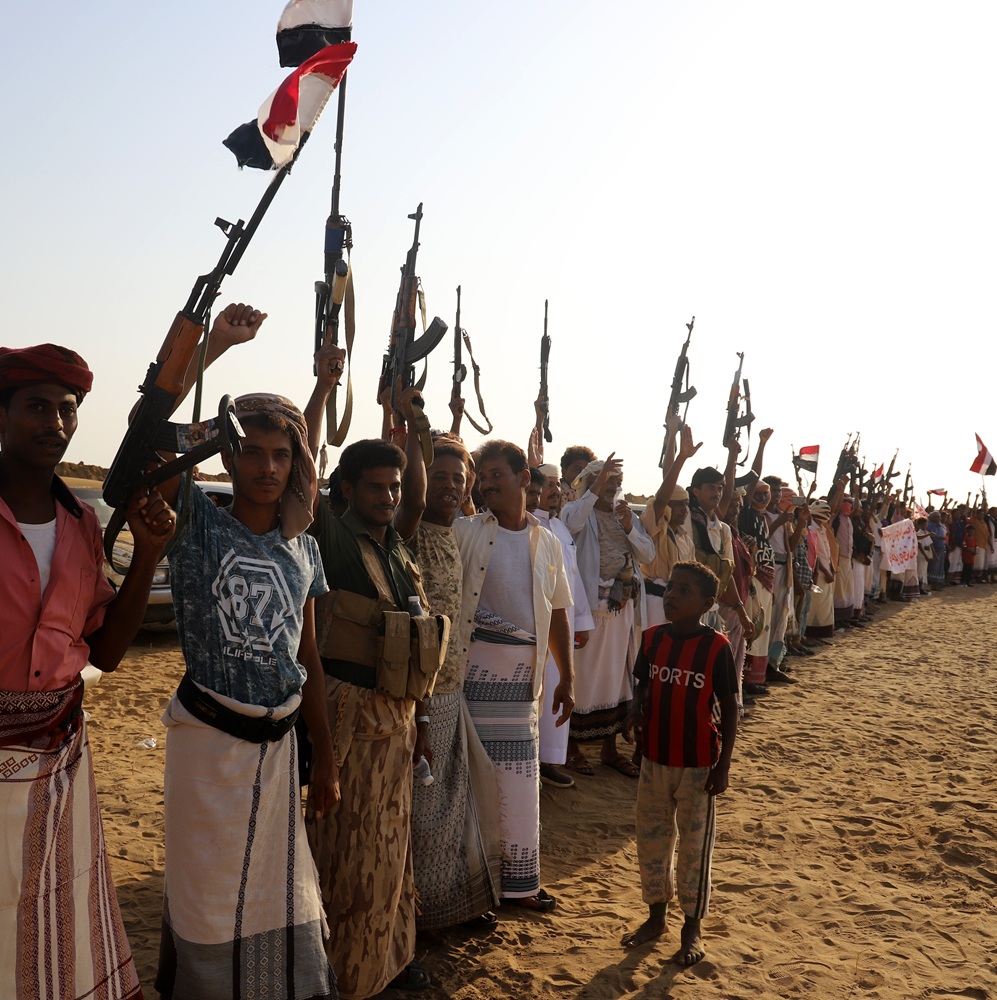
The ‘Clash of Nationalisms’ in the Contentious USA–Taiwan–China Relations
by Orson Tan , Alexander C. Tan
한국어로 읽기 Leer en español In Deutsch lesen Gap اقرأ بالعربية Lire en français Читать на русском Abstract Why is it that cross-strait tension has been at its highest since the missile crisis of 1996? Why is the USA–Taiwan–China relations so contentious since 2016? This article argues that one oft-neglected factor—nationalism and identity politics—needs to be considered as a contributing factor to the heightened tension in this triangular relationship. In all three states, audience costs have significantly increased as domestic leaders and elites appeal to populist and nationalistic positions and rhetoric. Though studies of foreign policy often claim that ‘politics stop at the water’s edge,’ populist and nationalist rhetoric in the domestic politics almost always spill over to the international arena. The convergence of Trump’s America First and the US’ obsession with its global primacy underpins and drives America’s approach to its strategic competition with China. China’s continual reference to the hundred years of humiliation in the nineteenth century and early twentieth century and Xi Jinping’s ‘China Dream’ are ethnonationalist appeals that drives China’s fight for its ‘rightful place’ in the global pecking order. Taiwan’s deepening national identity and sociopolitical de-Sinicisation while contributing the development of a separate nation-state is a direct clash to the People’s Republic of China (PRC’s) claim of Taiwan as part of its one-China principle. This article will trace and examine the role of domestic nationalism and how it has contributed to make the Taiwan Straits a ‘hotspot’ in global geopolitics and geoeconomics. Introduction The introduction of the phrase ‘Taiwan Contingency’ to the global lexicon in 2020 served to highlight how the temperature of cross-strait relations between China and Taiwan had become a key barometer that the global community was paying attention to (Taylor, 2020). It is also not a coincidence that the increasing attention paid to the Taiwan Strait comes at a time when the USA–China relationship has devolved into great power strategic competition; the Pentagon had long used the term ‘Taiwan Contingency’ in its annual assessment reports on the US military’s ability to implement the Taiwan Relations Act, going as far back as the report from the year 2000, but it was only when USA–China relations worsened and cross-strait tensions created a worry about a flashpoint that the term became widely used (Department of Defense, 2000; Wuthnow, 2020). Much has been said about the increasing tension in cross-strait relations being a result of the overarching competition between the USA and China to define their positions vis-a-viz each other in the global hierarchy. These increasing tensions have often been attributed to the inherent rivalry between an ascending power and a declining one, most notably by Graham Allison in his book Destined for War (Hanania, 2021). The idea of the Thucydides Trap as floated by Allison has become the dominant narrative in the discourse surrounding the USA–China competition and has also contributed to an arguably narrow analysis of the strategic competition. Influenced by the analysis of the Thucydides Trap, China’s actions have been cast separately as being driven by security concerns and imperial aggression, feeding into the narrative of a power struggle in the international arena between the reigning superpower and a surging new power with desires to fulfil its civilisational creed (Mazza, 2024; Peters et al., 2022; Sobolik, 2024). This view seeks to portray China as a disrupting force that seeks to upend the status quo in the international system and thereby overturn the current rules-based international order, while casting the USA as a defender standing up against Chinese aggression, and has led to the USA–China strategic competition also being referred to a ‘new Cold War’ (Brands & Gaddis, 2021; Mazza, 2024). The rising tension in the Taiwan Strait has thus been seen as serving as a frontline to this ‘new Cold War’, and that the three-party relationship between the USA, China and Taiwan serves as some litmus test of American ability to contain a rising China (Lee, 2024). In fact, China hawks in the US and Taiwanese officials have often made use of this ‘new Cold War’ setting to frame the USA–China strategic competition as a competition between autocracies and democracies, and that Taiwan’s democracy makes it worth protecting (Hung, 2022; Lee, 2024). The Taiwanese government has consistently focused on a need to build an alliance of democracies that will support the island against Chinese aggression, highlighting shared values and like-minded partners in their discourse (Ripley, 2024). Yet, a broader analysis shows how framing the rising tension in the Taiwan Strait was a by-product of the greater geopolitical struggle between the USA and China in this ‘new Cold War’ ignores other possible factors. Most notably, the impact of nationalism and identity politics on the domestic sphere needs to be considered as a contributing factor to the heightened tension in this triangular relationship. While there has been increasing attention on nationalism as a characteristic of the international system since the time that scholars like Holsti (1980) brought up the need to emphasise the ‘prominence of nationalist behaviour’ in international relations (IRs) theory, the contemporary analysis of the Taiwan Strait issue shows that most still ignore the impact of domestic pressures on foreign policy choice by the three parties in this relationship; audience costs have significantly increase as domestic leaders and elites appeal to populist and nationalistic positions and rhetoric, and these populist and nationalist rhetoric in the domestic politics almost always spill over to the international arena (p. 25). In the United States, we have the convergence of Trump’s America First ideology and the US’ obsession with its global primacy that underpins and drives America’s approach to its strategic competition with China. While in China, the Chinese Communist Party’s (CCP) continual reference to the hundred years of humiliation in the nineteenth century and early twentieth century and Xi Jinping’s ‘China Dream’ are ethnonationalist appeals that are used to reinforce the Party’s right to guide China to fight for its ‘rightful place’ in the global pecking order. On the island, Taiwan’s deepening national identity and sociopolitical de-Sinicisation while contributing the development of a separate nation-state create a direct clash to the People’s Republic of China (PRC’s) claim of Taiwan as part of its one-China principle. This article thus seeks to trace and examine the role of domestic nationalism and how it has contributed to make the Taiwan Strait a ‘hotspot’ in global geopolitics and geoeconomics. This is done by first analysing the literature on nationalism and its role in IRs, following which, the sections examine the unique nationalisms of the United States, China and Taiwan and their role in increasing audience costs for the political elite, which will allow us to analyse how this clash of nationalism contributes to the Taiwan Strait becoming the global ‘hotspot’ that it is. Understanding Nationalism in International Relations As previously mentioned, the literature on IRs theory mainly focuses ‘on models of international interaction based on rational action and material structural factors, and exogenising the formation of preferences and the actors’ identities’ (D’Anieri, 1997, p. 2). Even theorists who have engaged with nationalism in international relations have admitted that ‘the relationship between the two has never been an especially easy one’ (Cox, 2019, p. 249). Yet nationalism is arguably central to the practice of IRs, given how nationalism is a key factor that makes it possible to conceive of states as coherent agents, as it creates the distinctiveness that allows a nation-state to define itself in its interactions with another (Kowert, 2012; Waltz, 1959). It is almost impossible to ignore the role of nationalism given the presumed equivalence of ‘nation’ and ‘state’ in IRs theories, and how nationalism is embedded in the conceptualisation of sovereignty, which serves as a fundamental factor in the interactions between states (Heiskanen, 2019, 2021). This is especially so given how the era of globalisation has come to an end, giving rise to a period of IRs that is characterised by securitisation and the preponderance of terms like ‘national security’ and ‘national interest’ (Heiskanen, 2019; Posen, 2022). In this contemporary age, there is a heightened awareness of the need to express and protect a state’s sovereignty in its international interactions, which therefore paves the way for nationalism to be the ‘centripetal force’ in driving interactions between nation-states (Kovács, 2022; Waltz, 1959, pp. 177–178). Nationalism can play such a role in defining interactions between nation-states because nationalism at its core is the conceptualisation of the identity of the polity. Modern nationalism in that sense is the expression of the principle that ‘nation = state = people’, with the purpose of binding the people to the state under one ‘imagined community’ to justify the existence of the nation-state as a construct (Anderson, 1983; Hobsbawm, 1990, p. 19). The nationalism that defines the nation-state is neither natural nor inevitable, but rather a by-product of a nation-building effort to craft an identity that will allow the state to distinguish and therefore differentiate itself in a world of nation-states (Connor, 1990; Gellner, 1983; Smith, 1986). This creates the peculiarity of nationalism in which they are essentially all the same, yet at the same time, individually unique by necessity. It is thus the interaction between the individual uniqueness while having the same broad goals that lead to nationalism influencing the interactions of nation-states in the international arena; arguably, it is not just the strength of nationalism that is important but also the content of the national identity that helps dictate the interaction between the states (D’Anieri, 1997). The creation and the make-up of nationalisms and national identities are thus of interests for this article’s analysis of the triangular relationship between United States, China and Taiwan. The literature on nationalism and national identity gives us a breakdown on the creation of nationalism. As a relatively modern phenomenon, the rise of nationalisms around the world is a direct result of the socioeconomic upheaval that marked the progress of modernity (Anderson, 1983; Gellner, 1983). The advent of industrialisation saw the collapse of the previous social structure that separated the agrarian, merchant classes and the nobility, and necessitated the development of a new identity that would bind diverse groups of people together under the banner of a nation-state. In that regard, the creation of nationalism was necessarily top-down, often driven by the needs of the new political elite who now exercised power in these emerging modern nation-states and formed through nationwide tools such as a national language and the national education system (Anderson, 1983; Gellner, 1983). The content of the national identity though could not simply be created out of thin air where the general form of nationalisms is the same and built on a structure of common identity and a sense of belonging to a community, the content of nationalisms needed to be specific to the groups of people living in the nation-state to produce the necessary uniqueness that would engender the desired outcome. As such, nationalisms and national identities were built on the pre-existing myths and histories of the people that inhabited the land or were present at the founding of the nation-state (Billig, 1995; Calhoun, 1997; Smith, 1986). This results in various contents of the nationalism that are part ethnic but also part mythological. The next section will examine the contents of the national identities of the United States, China and Taiwan in relation to this. American Exceptionalism: America the Great Like all nationalisms, American nationalism aims to ‘legitimise, mobilise and integrate the nation, thereby promoting the unity of the national people, and demanding a sovereign state for this nation’ (Trautsch, 2016, p. 291). Yet unlike European nationalism which had existing histories to build upon, American nationalism was ‘a model of nationhood that did not rest on historic claims to antiquity nor on any sense of distinctive peoplehood’, its foundations being very much rooted on mythologising the pilgrims’ journey across the Atlantic on the Mayflower and the nation’s beginnings as a settler nation (Doyle, 2009, p. 79). The pilgrims’ journey on the Mayflower marked the separation between the ‘Old World’ and the ‘New World’, providing dividing line that forms the basis for the conceptualisation of America as unique. While American nationalism does identify its roots with the colonial migration from Europe, the beginnings of this nationalism are tied specifically to the American Revolution and the Declaration of Independence (Doyle, 2009). The War of Independence marked a coalescing of consciousness in the 13 colonies that birthed a new nation, and gave even more credence to the distinction between Europe and the ‘Old World’, and the new American nation in the ‘New World’ (Commager, 1959; Doyle, 2009). This distinction was helped by the colonies’ history as an asylum for religious dissenters, impoverished servants and assorted refugees from Europe, allowing the colonies to divest itself of its British heritage (Doyle, 2009). Yet, certain aspects of British culture did influence the founding fathers of America in the conception of the American nation. While rebelling against their colonial masters, the founding fathers framed their independence as based on the British belief in the institutions of law, liberty and representative government mixed with a healthy dose of religiosity, which, given the lack of a feudal tradition and existing aristocracy, allowed for the creation of a national consciousness that celebrated equality without the necessary social revolution that marked the ‘Old World’ (Lieven, 2012). This allowed for the image of America as a newfound promise land, further playing into the distinction between the old and new, and as scholars from Tocqueville on have noted, birthed the idea of the exceptionalism of the American nation, the ‘shining city on the hill’ (Lieven, 2012). The subsequent expansion of the USA westward that saw the eventual formation of the geographical borders of modern America helped to further this sense of exceptionalism. As the expansion evolved from purchasing land to conflict with both the Native Americans and the Spanish colonial forces, American exceptionalism took on a sense of preordination (Doyle, 2009; Trautsch, 2016). Between the Revolution and the Civil War, American nationalists who recognised the need for strengthening the national consciousness began the enterprise by focusing on the fundamental idea that ‘Americans had a historic mission and that their bond of nationhood lay in their common destiny’; this required the positioning of America’s future place in the history of the world as one that was naturally glorious (Doyle, 2009, p. 86; Trautsch, 2016). To that end, the nationalists pushed the narrative of America’s ‘manifest destiny’, an unstoppable rise for the ‘freest, the happiest, and soon to be the greatest and most powerful country in the world’ (Doyle, 2009, p. 88). The successful expansion and victories in conflict that eventuated in the American nation covering the breadth of continental North America firmly entrenched this sense of preordained greatness for the nation. American nationalism had come to encompass both the civic values of liberty and respect for institutions, and the dreams of imperial grandeur that marked them for greatness; America was free and therefore exceptional, just as America was victorious and therefore exceptional. American exceptionalism, therefore, made the nation’s ascension to the top of the global hierarchy post-1945 easy. To the American nation, having believed in their destined greatness, a seat at the table presiding over global affairs was only to be expected. American nationalism had led the nation to believe in its destiny, and it saw itself as having been chosen, or even, anointed to lead (Lieven, 2012). Such exceptionalism naturally influences modern American foreign policy, as Kristol (1983) points out: Patriotism springs from love of the nation’s past; nationalism arises out of hope for the nation’s future, distinctive greatness…The goals of American foreign policy must go well beyond a narrow, too literal definition of ‘national security.’ It is the national interest of a world power, as this is defined by a sense of national destiny. (p. xiii) American nationalism shapes the way the USA views its interactions with the world, starting with its presumption of its deserved position at the top of the global hierarchy. The mythologising of its ‘historic mission’ and ‘manifest destiny’ helped to create the paradigm that the United States is the natural leader of the world, and its national interests include the protection of its position as the leader of the world. This creates a knock-on effect in its interactions with other states; if the United States is the natural leader, then others must listen and be led, and as the leader, challenges to its primacy cannot be tolerated. However, such conceptualisation brings it into a clash with the rising nationalism of China. Chinese Ethnonationalism: The China Dream Unlike American nationalism, modern Chinese nationalism is a relatively new phenomenon. In fact, the conceptualisation of a Chinese nation did not come about until the nineteenth century, as the Chinese tried to ‘create a modern identity to cope with conditions created by China’s confrontation with the Western world’, forcing the Chinese ‘to deal with foreign concepts, including that of nation, state, sovereignty, citizenship and race’ (Wu, 1991, p. 159). Furthermore, where American nationalism was centred upon its existence as a settler nation, Chinese nationalism could rest on both historic claims to antiquity and a sense of distinctive peoplehood, as Smith (1986) would have identified it, the roots of Chinese nationalism were definitely ethnosymbolic. The 1911 Revolution that saw the collapse of the Qing Dynasty and Imperial China marked the beginnings of modern Chinese nationalism (Townsend, 1992). Where previously the conceptualisation of Chinese identity was grounded in a rich cultural heritage of stories about the ‘abstract idea of the ‘Great Tradition’ of Chinese civilisation’, the encroachment of Western colonial forces in China led to rising discontentment amongst the Chinese public and the rise of intellectual writings about a modern form of Chinese identity which combined Chinese tradition and Western nationalism (Townsend, 1992; Wang, 1988, p. 2; Zheng, 2012). Dr Sun Yat-Sen, who is acknowledged as the father of the modern nation, pushed for the creation of a consciousness of nationhood in his Three Principles of the People, advocating for the creation of modern Chinese nationalism that was centred upon the Chinese people as a unified group, which he categorised as the Chinese ethnic community, ÖлªÃñ×å zhonghuaminzu (Fitzgerald, 2016; Tan & Chen, 2013; Wang, 1988; Wells, 2001). The end of the 1911 Revolution saw the establishment of the Republic of China (ROC) with Dr. Sun as the first president (Zheng, 2012). This marked the transition of China from imperial to statehood and saw the coalescing of the consciousness of Chinese nationhood. The ethnosymbolic roots of Chinese nationalism permeated this consciousness, even the name of the Republic, ÖлªÃñ¹ú zhonghuaminguo, emphasised the belonging of the state to the Chinese ethnic nation as the first three characters of the name represent the ethnic Chinese nation. So, Chinese nationalism can be said to also equate to Chinese ethnonationalism, and as a nationalism that rested on the rich history of the Chinese people and the abstract conceptualisation of the following the tradition of great Chinese civilisations, Chinese nationalism is also beholden to a lot of nostalgia. Where Dr Sun and his fellow intellectuals pushed the creation of Chinese nationalism by appealing to the cultural heritage of Chinese civilisation, they combined this with modern western nationalist ideology that focused on a struggle for sovereignty, in this case against the Western imperial powers and the Qing rulers. As such, this nostalgia is driven by the experiences of the Chinese people during the perceived ‘century of humiliation’ °ÙÄê¹ú³Ü bainianguochi starting from the Opium War till 1945, where China struggled for self-determination only to be invaded by the Japanese prior to the Second World War (Fitzgerald, 2016; Townsend, 1992; Zheng, 2012). China, as the empire-turned-nation and heir to the great tradition of Chinese imperial civilisation, was successively beaten and this was seen as a deep shame to the Chinese people who under successively foreign oppressors, including the Manchus of the Qing Dynasty, longed for freedom and a return to glory for the Chinese nation. As such, when Mao announced the founding of the PRC in 1949, the legitimacy of the CCP in ruling the nation was built on Chinese nationalism and the part that the party played in defeating the Japanese. The CCP’s victory in the civil war was arguably also because they presented themselves as even more nationalist than the nationalist Kuomintang (KMT) that they chased out of the mainland (Gries, 2020). This close connection between the party’s legitimacy and Chinese nationalism has seen the CCP often fall back on nationalistic propaganda to shore up its position of power, most notably after the events of Tiananmen Square (Gries, 2020). With his ascension to the presidency, Xi Jinping has continued the use of Chinese nationalism to firm up the party’s hold on power, having often referred to China’s rise as the country’s national destiny, referencing the country’s glorious past and harping on the ‘century of humiliation’ that denied China its place among the world’s powers (Tan, 2023). In this current form of Chinese ethnonationalism, Xi’s slogan of ‘national rejuvenation’ helps to reinforce the concept that China, once great but humiliated by the predations of Western colonisers, is now reclaiming its previous majesty to fulfil the ‘China Dream’ (Tan, 2023). This creates the sense that China must stand up to Western powers due to their rightful placed in the world while it must also continue to address the humiliations of the past, of which Taiwan serves as a reminder of, and this creates the setting for competition with the United States and rising tensions with Taiwan. Taiwanese Nationalism: De-sinicised and Independent The case of Taiwanese nationalism is an interesting one. Of the three nationalisms examined in this article, Taiwanese nationalism is the youngest one, having come into existence only in recently. Furthermore, unlike the United States and China, there is no continuity and coherence between the nation and the state in Taiwan. The state governing and exerting authority over Taiwan’s population embodies and merges two distinct political visions, each tied to a separate national identity: Chinese and Taiwanese, as the ROC is ‘a product of Chinese history and Chinese nationalism’, having been imposed onto the island when the KMT lost the civil war and fled the mainland (Clark & Tan, 2012; Lepesant, 2018, p. 65). In fact, while the KMT exercised marital rule over the island under the regimes of Chiang Kai-shek and Chiang Ching-kuo, the party tried constantly to impose an essentialist Chinese nationalism that clashed with the memories and experience of most of the island’s population, especially those who were raised under Japanese rule (Lepesant, 2018). This directly restricted the development of a national consciousness that centred on Taiwanese-ness, which explains the relatively late creation of Taiwanese nationalism. While overseas Taiwanese who were exiled by the KMT had started to display ideologies that was a semblance of Taiwanese nationalism, it was not until the 1980s and the gradual democratisation of the island that this nationalism began to take root (Chiou, 2003; Clark & Tan, 2012; Wakabayashi, 2006; Wu, 2004). With the increasing calls for political liberalisation in the 1980s, Chiang Ching-kuo began the initial process of Taiwanisation, allowing for the appointments of Taiwanese who were ±¾Ê¡ÈË benshengren (Han-Chinese who were on the island before the 1949 migration) to political positions even in his own administration (Cabestan, 2005). This kickstarted the process of nation-building, which only moved into a higher gear with the democratisation of the island in the early 1990s as there developed a political imperative to create an identity that could unify the people on the island (Wakabayashi, 2006). Lee Teng-hui, as the president of Taiwan who oversaw the democratisation process, put his support behind the Taiwanisation movement, supporting the development of a nation-building programme that would spur the adoption of Taiwanese nationalism, against the wishes of the KMT old guard. Lee’s action in building up Taiwanese nationalism is best seen in his propagation of the idea of a ‘new Taiwanese’ national identity in his speech to the National Assembly and more concretely, the change in name for the ROC to the ROC on Taiwan (Chiou, 2003; Jacobs, 2007; Wakabayashi, 2006). As such, the content of Taiwanese nationalism cannot be separated from the complex history of the island. The roots of Taiwanese nationalism are traced to the imperial expansion of Japan in the late 1800s, while previously the island had some contact with various Chinese dynasties and a brief colonial period by the Dutch, the Qing had neglected the island which meant that Japanese colonialisation marked the modernisation of the island (Cabestan, 2005; Wakabayashi, 2006). Japanese colonial rule also sparked the development of a pan-Taiwanese identity rooted in a struggle for independence, and distinctly anti-colonial and anti-Japanese (Brown, 2004). This pan-Taiwanese identity covered all the residents of the island who were not Japanese and therefore was not just restricted to the ethnic Han Chinese. With democratisation and the push for the ‘new Taiwanese’ national identity under Lee, this pan-Taiwanese identity was used as the foundation to build a new national identity. However, this also meant that the aspects of this identity that focused on independence were subsumed into the new Taiwanese nationalism, which was further enhanced by the experiences of the Taiwanese people under KMT rule (Wakabayashi, 2006). For Taiwan, both Japanese colonial rule and the experience of the civil war of post-1945 China became the existence of the ‘others’ to the development of the Taiwanese sense of self (Wakabayashi, 2006). This therefore meant that Taiwanese nationalism was first and foremost a nationalism for an independent Taiwan. In 2000, with the election of Chen Shui-bian from the then opposition Democratic Peoples’ Party (DPP) to the presidency, Taiwanese nationalism took another step in its evolution. No longer was Taiwanese nationalism simply about the independent sovereignty of the island whilst maintaining the cultural affinity for the Chinese tradition as espoused by Lee, but now there was a clear de-Sinicised aspect to Taiwanese nationalism and national identity (Hughes, 2013; Wakabayashi, 2006). This was driven by the policies of the Chen administration which included initiatives to rectify Taiwan’s name, changes to institutions designed to promote unification with mainland China, attempts to change the ROC Constitution and most importantly, the re-orientation of the education curriculum to focus more on Taiwan and less on the mainland. This resulted in the evolution of Taiwanese national identity towards one that increasingly sidelined the culturally ethnic Chinese component, instead insisting a cultural makeup that was simultaneously Han Chinese, Japanese and Aboriginal Taiwanese (Brown, 2004; Hughes, 2013; Wu, 2004). Yet such a nationalism brings along issues given the precarious relationship between the island and its cross-strait neighbour. The Clash of Nationalisms This article aimed to examine the role that nationalism played in the rising tensions in the United States, China and Taiwan triangular relationship. The idea that nationalisms can be antagonistic to each other and lead to conflict is not entirely new, despite the lack of IR theories that appropriately accommodate for the impact of nationalism. Samuel Huntington (1996) in his book, Clash of Civilizations, argues that future global conflicts will be driven not by ideological or economic differences but by cultural and civilisational divisions due to the increasing interaction between civilisations as a result of globalisation. Huntington (1996) predicted that a rising and assertive East Asia, on the back of rapid economic development, would increasingly come into conflict with Western civilisation led by the United States, in part due to a difference in cultural values and geopolitical goals. Where some would argue that Huntington’s claims were oversimplified and may broadly reinforce cleavages, especially in the aftermath of 9/11 and the War on Terror, his basic premise provides an interesting starting point to examining the impact of nationalism on the USA–China–Taiwan relationship. While Huntington viewed the incoming conflict as drawn along civilisational lines, assuming that cultural similarities and affinities would be sufficient to create groupings of nation-states around the world that would come into conflict with each other, recent events have proven otherwise. In fact, cases like Donald Trump’s threat to put a 25% tariff on Canadian imports when he assumes the presidency in January 2025 serve as a reminder that nationalism can easily overpower any sense of cultural affinity, even between nations as closely connected and allied as the United States and Canada (Hale, 2024). The advent of modernity brought about the rise of nationalism in the nation-state, and in the bid to give the nation-state’s existence legitimacy, each nationalism was propagated as individually unique. And as such, while cultural civilisations may not be a cleavage that thoroughly defines the world today, nationalism seems to be one that could fit into Huntington’s theory instead. Given the unique nationalisms of the United States, China and Taiwan covered in the sections above, it also appears that what is happening in this triangular relationship is a conflict arising from diametrically opposed nationalisms, a ‘clash of nationalisms’ if you will. Figure 1 summarises the interactions between the nationalisms of the United States, China and Taiwan. Figure 1. Interaction Between Nationalisms. The United States having built a national identity that centred on a higher calling to being a model nation and leader of the world sees its position at the top of the global hierarchy as sacrosanct. The reason why the concept of the ‘Thucydides trap’ has gained so much attention is because there is an inherent acknowledgement that no matter the ills that may plague the United States, it is unwilling to see the global primacy it has established after the end of the Cold War being challenged (Mazza, 2024). However, China’s ascendency on the back of its rapid economic growth and the fact that it managed to emerge from the 2007–8 Great Financial Crisis relatively unscathed has given life to the belief in the PRC that their anointed time has finally come. Driven by Xi’s desire to push Chinese ethnonationalism as a foundation for the PRC’s assertiveness in the international arena, the world is now witnessing a China that seeks to act like a great power, including a demand for regional hegemony (Mazza, 2024). Yet regional hegemony for the PRC set it in direct conflict with the United States as regional hegemony in East Asia would mean the United States having to pull back on its global primacy and cede control over the region where it has key allies like Japan and South Korea. And this is exacerbated by the anti-West element of Chinese ethnonationalism that holds the West, with the United States being symbolic of it, responsible for the century of humiliation and the country not being the rightful great power it should have long been. As the saying goes, one mountain cannot contain two tigers, the nationalisms of both the United States and the PRC are dependent on the countries fulfilling their self-perceived destiny of greatness which naturally puts them into conflict with each other and is reflected in Figure 1. Similarly, Figure 1 also shows how the nationalisms of China and Taiwan are in conflict. As mentioned above, Chinese ethnonationalism and the ‘China Dream’ are also about washing away the shame from the century of humiliation. Part of this humiliation stems from the losses to the Japanese in the two Sino-Japanese wars, of which the loss of the island of Taiwan serves as a reminder of and it is for this reason that Xi has made clear that reunification between Taiwan and the mainland is a core part of his ‘national rejuvenation’ (Sobolik, 2024). Yet, in Taiwan, the evolution and rise of Taiwanese nationalism have led to a strong Taiwanese national identity that rejects its relationship with the Chinese mainland; increasingly Taiwanese are rejecting the Beijing-led discourse of a common identity between them and the mainland Chinese, and polling shows an increasing majority of Taiwanese no longer identify as Chinese (Fifield, 2019; Wang, 2023). This sets up the two nations in a path for conflict, a worse-case scenario that experts are predicting gets ever closer, as Taiwanese independence is a redline for China that cannot be crossed, but any form of reunification for the island is incompatible with their unique and independent national identity (Kuo, 2022; Wu, 2004). On the flip side, the relationship between American nationalism and Taiwanese nationalism is somewhat complementary, as shown in Figure 1. In examining American nationalism above, we pointed out how much of American nationalism is driven by American primacy in the form of American exceptionalism. This exceptionalism has been shown to have a messianic fervour, with Badri (2024) arguing that this has led to America’s interventionist foreign policy since 1991. Yet this messianic fervour makes American nationalism the perfect complement for Taiwanese nationalism. As Taiwanese nationalism tends towards de-sinicisation and independence, it has also gone through pains to emphasise its democratisation as a key characteristic of its nationalism. This results in America becoming a natural support pillar for the objectives of Taiwanese nationalism, while America’s messianic tendencies lead it to want to support Taiwanese democracy. As a result, American and Taiwanese nationalism become complementary existences. However, that the nationalisms are in conflict do not necessarily explain the existence of the triangular relationship that has seen the Taiwan Strait become the geopolitical ‘hotspot’ that it is. In order to do so, it is important to remember that nationalism is a double-edged sword when used by governments (Gries, 2020; Tan, 2023). Since 2016, we have seen the respective governments in all three countries increasingly turn to nationalism to further their own agendas (Kuo, 2022; Restad, 2020). Trump won his first presidential victory on the back of his ‘Make America Great Again’ slogan, which implied that the greatness of the American nation had been allowed to wane by his political predecessor. In doing so, Trump had unleashed a torrent of populism built upon conservative American nationalism that centred upon how powerful and great the country was perceived at the end of the Cold War and the longing for a return to those days (Renshon, 2021). In China, Xi, as previously mentioned, turned to the concept of the ‘China Dream’ in his bid to secure the legitimacy of the CCP and his hold over power. In his elaboration, it was the preeminent task of the CCP to restore the past glory of the nation and thereby, turn the dream of a great power nation into a reality, which would aid in making life better for the Chinese people (Bhattacharya, 2019). The rise of Chinese ethnonationalism has been successful in legitimising the position of the CCP in the wake of the political turmoil of the early 2010s and increasingly we have seen assertive Chinese expressions of this ethnonationalism, be it in its ‘Wolf Warrior’ diplomacy or cases of Chinese international students in university campuses in places like Australia, United States and the United Kingdom who openly challenge their lecturers and peers who comment on issues like Taiwan and Hong Kong (Tan, 2023). While in Taiwan, the DPP under Tsai Ing-wen latched on to the anti-Chinese sentiment of the 2014 Sunflower Movement and harnessed Taiwanese nationalism and desire to exist as a sovereign people to win the 2016 presidential election from the KMT (Chen & Zheng, 2022; Clark et al., 2020). Since then, the DPP has increasingly relied on Taiwanese nationalism to secure itself electoral victories, as it provides a clear delineation on the Taiwanese/Chinese cleavage between itself and the opposition KMT, while also allowing the government to create a narrative that differentiates Taiwan from the mainland, and therefore rouse support for its cause for international recognition (Lee, 2024). In each of these countries, we have seen political leaders turning to nationalism for their own domestic agendas. However, using nationalism in such manner also means that there is a significant consequence when the desires and dreams of the nationalism cannot be fulfilled, especially for regimes that have built their legitimacy on said nationalisms. To that end, the escalation of tension in the Taiwan Strait becomes understandable. Taiwanese nationalism has led to Tsai and the DPP to insist on Taiwanese sovereignty, even without the need for actual independence, but this has crossed the CCP’s red line and Chinese ethnonationalism necessitates a reaction in the form of increased military activity. The United States, having been bound to support Taiwan due to the Taiwan Relations Act, and in part to reassert its global hegemon status, thus sees it as imperative that it continue to be involved in the situation in the Taiwan Strait, either through freedom of navigation movements or selling of arms. As each side escalates their foreign policy response to the Taiwan Strait issue, audience costs for the political leaders also increase. Having unleashed the forces of nationalism, any semblance that the political leader is contemplating backing down would have serious implications on the stability of the domestic regime. This is even more so given the looming economic challenges in each of the three nations. Conclusion Therefore, the triangular relationship between the United States, China and Taiwan is not merely a product of power struggles or ideological conflicts but a ‘clash of nationalisms’. The interplay of unique national identities, reinforced by domestic pressures, has intensified the geopolitical stakes in the Taiwan Strait, transforming it into a critical hotspot in global politics. In understanding this, we can therefore see how nationalism is in fact an important factor that influences the interactions of states in IRs theories. Declaration of Conflicting InterestsThe authors declared no potential conflicts of interest with respect to the research, authorship and/or publication of this article.FundingThe authors received no financial support for the research, authorship and/or publication of this article.Cite: Tan, O., & Tan, A. C. (2025). The ‘Clash of Nationalisms’ in the Contentious USA–Taiwan–China Relations. Journal of Asian Security and International Affairs, 12(2), 181-196. https://doi.org/10.1177/23477970251340743 (Original work published 2025) References Anderson B. (1983). Imagined communities. Verso. Badri A. (2024). The United States is a messianic state: Rhetorical roots in US foreign policy since 1991. Australian Journal of International Affairs, 79(1), 150–168. Bhattacharya A. (2019). Chinese nationalism under Xi Jinping revisited. India Quarterly, 75(2), 245–252. Billig M. (1995). Banal nationalism. Sage Publications. Brands H., & Gaddis J. L. (2021). The new cold war: America, China, and the echoes of history. Foreign Affairs, 100, 10. Brown M. J. (2004). Is Taiwan Chinese? The impact of culture, power, and migration on changing identities. University of California Press. Cabestan J.-P. (2005). Specificities and limits of Taiwanese nationalism. China Perspectives, 2005(62), 32–43. Calhoun C. (1997). Nationalism. University of Minnesota Press. Chen C.-J. J., & Zheng V. (2022). Changing attitudes toward China in Taiwan and Hong Kong in the Xi Jinping era. Journal of Contemporary China, 31(134), 250–266. Chiou C. L. (2003). Taiwan’s evolving nationalism. In Liew L. H., & Wang S. (Eds.), Nationalism, democracy and national integration in China (1st ed., pp. 107–121). RoutledgeCurzon. https://doi-org.libproxy1.nus.edu.sg/10.4324/9780203404294-10 Clark C., & Tan A. C. (2012). Taiwan's political economy: Meeting challenges, Pursuing Progress. Lynne Rienner Publishers. https://doi.org/10.1515/9781626375024 Clark C., Tan A. C., & Ho K. (2020). Was 2016 a realigning election in Taiwan? Asian Survey, 60(6), 1006–1028. Commager H. S. (1959). The origins and nature of American nationalism. In University P. S. (Ed.), Special collections: Oregon Public Speakers. Portland State University. Connor W. (1990). When is a nation? Ethnic and Racial Studies, 13(1), 92–103. Cox M. (2019). Nationalism, nations and the crisis of world order. International Relations, 33(2), 247–266. D’Anieri P. (1997). Nationalism and international politics: Identity and sovereignty in the Russian-Ukrainian conflict. Nationalism and Ethnic Politics, 3(2), 1–28. Department of Defense. (2000). Report on Implementation of Taiwan Relations Act (3390). Doyle D. H. (2009). Beginning the world over again: Past and future in American nationalism. In Nations and their histories: Constructions and representations (pp. 77–92). Springer. Fifield A. (2019, 26 December 2019). Taiwan’s ‘born independent’ millennials are becoming Xi Jinping’s lost generation. The Washington Post. https://www.washingtonpost.com/world/asia_pacific/taiwans-born-independent-millennials-are-becoming-xi-jinpings-lost-generation/2019/12/24/ce1da5c8-20d5-11ea-9c2b-060477c13959_story.html Fitzgerald J. (2016). The nationless state: The search for a nation in modern Chinese nationalism. In Chinese nationalism (pp. 56–85). Routledge. Gellner E. (1983). Nations and nationalism. Blackwell Publishing. Gries P. (2020). Nationalism, social influences, and Chinese Foreign Policy (pp. 63–84). https://doi.org/10.1093/oso/9780190062316.003.0004 Hale E. (2024, November 26). What are Trump’s plans for tariffs on China, Canada and Mexico? Al Jazeera. https://www.aljazeera.com/economy/2024/11/26/what-are-trumps-plans-for-tariffs-on-china-canada-and-mexico Hanania R. (2021). Graham Allison and the Thucydides trap myth. Strategic Studies Quarterly, 15(4), 13–24. Heiskanen J. (2019). Spectra of sovereignty: Nationalism and international relations. International Political Sociology, 13(3), 315–332. Heiskanen J. (2021). Nations and nationalism in international relations. In Carvalho B. D., Lopez J. Costa, & Leira H. (Eds.), Routledge handbook of historical international relations (1st ed., Vol. 1, pp. 244–252). Routledge. https://doi.org/10.4324/9781351168960 Hobsbawm E. (1990). Nations and nationalism since 1780: Programme, myth, reality. Cambridge University Press. Holsti K. J. (1980). Change in the international system: Interdependence, integration, and fragmentation. In Holsti O. R., Siverson R. M., & George A. L. (Eds.), Change in the international system (1st ed., pp. 23–53). Routledge. https://doi-org.libproxy1.nus.edu.sg/10.4324/9780429052187-2 Hughes C. R. (2013). Negotiating national identity in Taiwan: Between nativization and de-sinicization. In Ash R., Garver J. W., & Prime P. (Eds.), Taiwan’s democracy (pp. 51–74). Routledge. Hung H.-F. (2022). Clash of empires: From ‘Chimerica’ to the ‘New Cold War’. Cambridge University Press. Huntington S. P. (1996). The clash of civilizations and the remaking of world order. Simon & Schuster. Jacobs B. (2007). Lee Teng-hui and the Idea of ‘Taiwan’. The China Quarterly, 190, 375–393. https://doi.org/10.1017/S0305741007001245 Kovács B. (2022). Fear and securitisation. In Simon Z., & Ziegler T. D. (Eds.), European politics: Crises, fears and debates (pp. 121–137). L’Harmattan. Kowert P. A. (2012). National identity: Inside and out. In Origins of National Interests (pp. 1–34). Routledge. Kristol I. (1983). Reflections of a neo-conservative. Basic Books. Kuo M. A. (2022, 12 Sep 2022). Cross-strait Crisis and Taiwan’s National Identity. The Diplomat. https://thediplomat.com/2022/09/cross-strait-crisis-and-taiwans-national-identity/ Lee J. (2024). Taiwan and the ‘New Cold War’. EurAmerica, 54(1), 69–116. Lepesant T. (2018). Taiwanese youth and national identity under Ma Ying-jeou. In Jacobs J. B., & Kang P. (Eds.), Changing Taiwanese identities (1st ed., pp. 64–86). Routledge. Lieven A. (2012). America right or wrong: An anatomy of American nationalism. Oxford University Press, USA. Mazza M. (2024, March 31). Power is the answer in U.S. competition with China. Foreign Policy. https://foreignpolicy.com/2024/03/31/us-competition-china-great-power-cold-war/ Peters M. A., Green B., Mou C., Hollings S., Ogunniran M. O., Rizvi F., Rider S., & Tierney R. (2022). US–China Rivalry and ‘Thucydides’ Trap’: Why this is a misleading account. Educational Philosophy and Theory, 54(10), 1501–1512. https://doi.org/10.1080/00131857.2020.1799739 Posen A. S. (2022, March 17). The end of globalization? Foreign Affairs. https://www.foreignaffairs.com/articles/world/2022-03-17/end-globalization Renshon S. A. (2021). The Trump doctrine and conservative American nationalism. The Trump Doctrine and the Emerging International System, 3–38. Restad H. E. (2020). What makes America great? Donald Trump, national identity, and US foreign policy. Global Affairs, 6(1), 21–36. Ripley W. (2024, December 1). Taiwan’s President Lai Ching-te in Hawaii: A stopover that speaks volumes. CNN. https://edition.cnn.com/2024/12/01/asia/taiwan-lai-hawaii-china-intl-hnk/index.html Smith A. D. (1986). The ethnic origins of nations. Blackwell Publishing. Sobolik M. (2024, April 27). Xi’s imperial ambitions are rooted in China’s history. Foreign Policy. https://foreignpolicy.com/2024/04/27/xi-imperial-ambitions-chinese-history-empire-dynasty/ Tan A. C., & Chen B. (2013) China's competing/co-opting nationalisms. Pacific Focus, 28, 365–383. https://doi.org/10.1111/pafo.12013 Tan O. (2023, June 13). Riding the tiger: Ethno-nationalism and China’s Foreign Policy. The Diplomat. Taylor B. (2020, February 26). Taiwan flashpoint: What Australia can do to stop the coming Taiwan crisis. The Interpreter. https://www.lowyinstitute.org/publications/taiwan-flashpoint-what-australia-can-do-stop-coming-taiwan-crisis Townsend J. (1992). Chinese nationalism. The Australian Journal of Chinese Affairs, 27, 97–130. Trautsch J. M. (2016). The origins and nature of American nationalism. National Identities, 18(3), 289–312. Wakabayashi M. (2006). Taiwanese nationalism and the ‘unforgettable others’. In Friedman E. (Ed.), China’s rise, Taiwan’s dilemmas, and international peace (pp. 3–21). Routledge. Waltz K. (1959). Man, the state, and war: A theoretical analysis. Columbia University Press. Wang A. (2023, 22 Apr 2023). ‘I am Taiwanese’: The threat of war from Beijing strengthens island’s identity. Hong Kong Free Press. https://hongkongfp.com/2023/04/22/i-am-taiwanese-the-threat-of-war-from-beijing-strengthens-islands-identity/ Wang G. (1988). The study of Chinese identities in Southeast Asia. In Cushman J., & Wang G. (Eds.), Changing identities of the Southeast Asian Chinese since World War II (pp. 1–22). Hong Kong University Press. Wells A. (2001). Sun’s three principles of the people: The principle of nationalism. In Wells A. (Ed.), The political thought of Sun Yat-sen: Development and impact (pp. 61–72). Palgrave Macmillan, UK. https://doi.org/10.1057/9781403919755_6 Wu D. Y.-H. (1991). The construction of Chinese and non-Chinese identities. Daedalus, 159–179. Wu Y.-S. (2004). Taiwanese nationalism and its implications: Testing the worst-case scenario. Asian Survey, 44(4), 614–625. Wuthnow J. (2020). System overload: Can China’s military be distracted in a war over Taiwan? National Defense University Press. Zheng D. (2012). On modern Chinese nationalism and its conceptualization. Journal of Modern Chinese History, 6(2), 217–234. https://doi.org/10.1080/17535654.2012.708233









